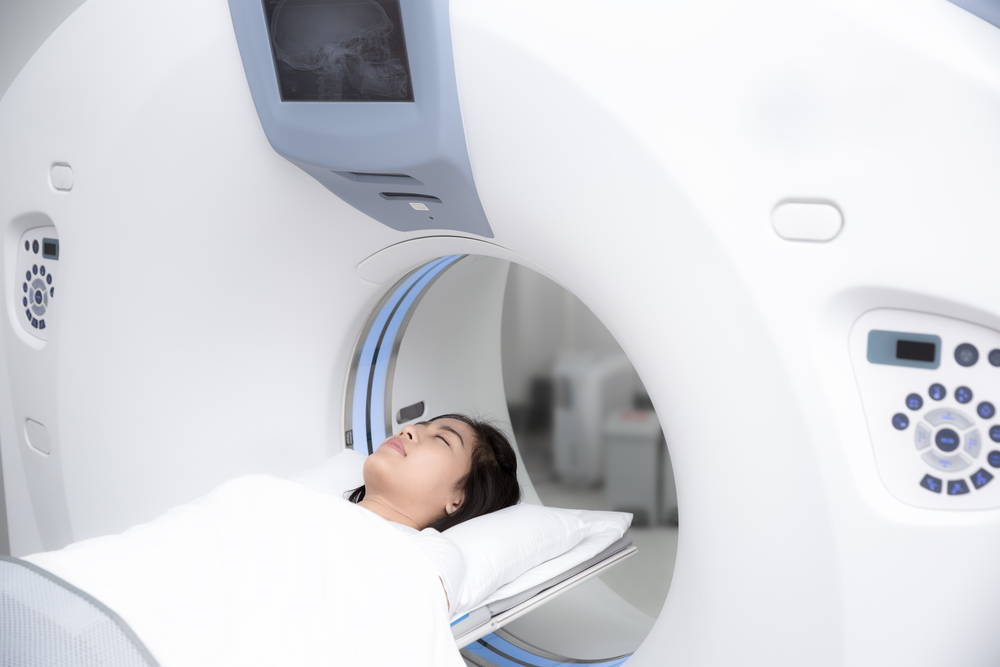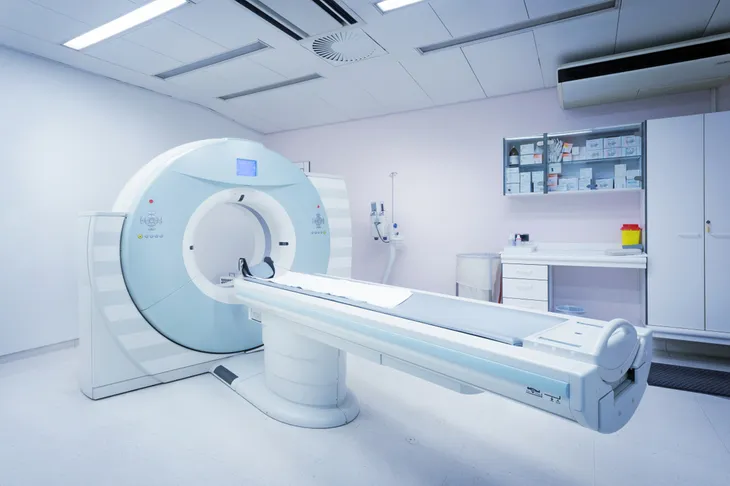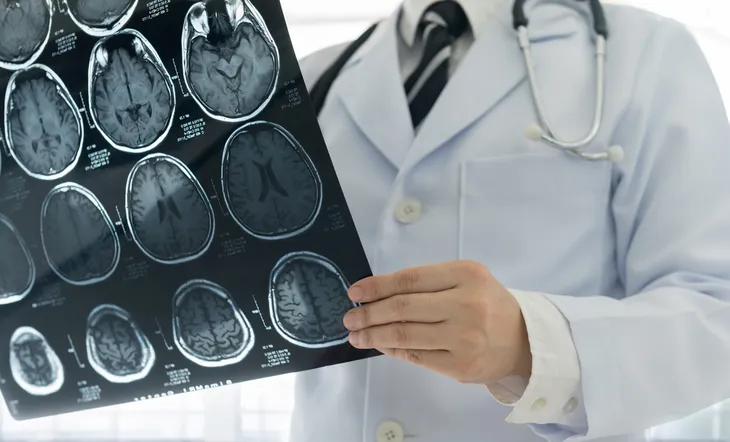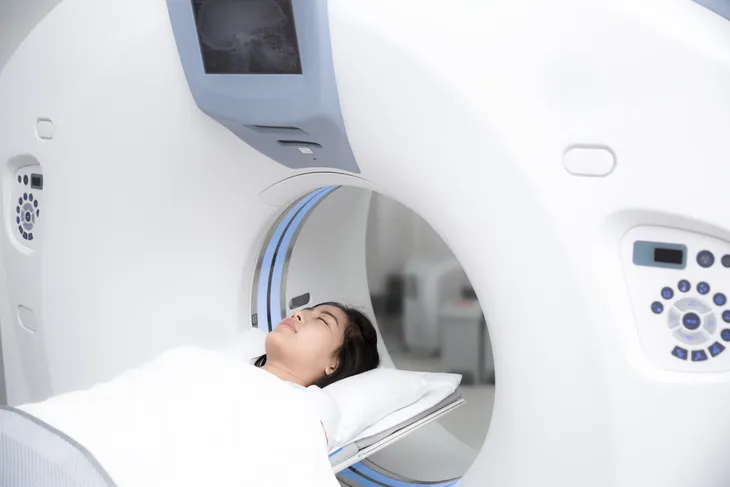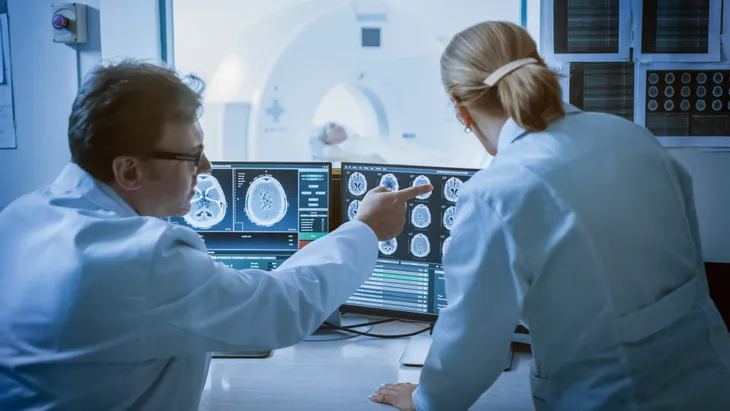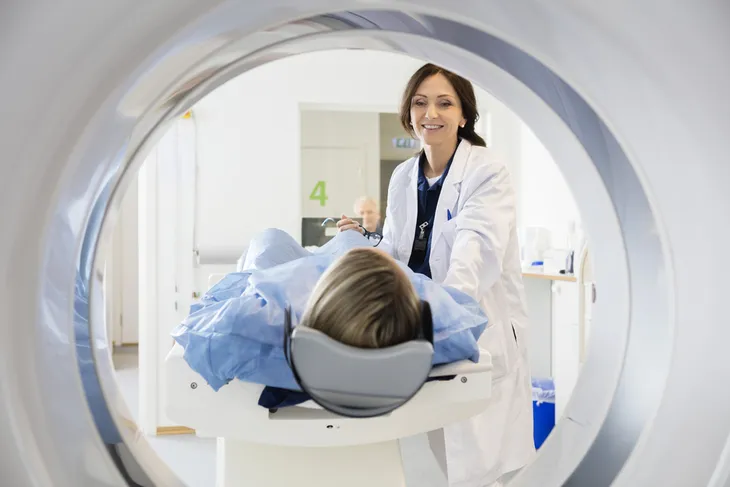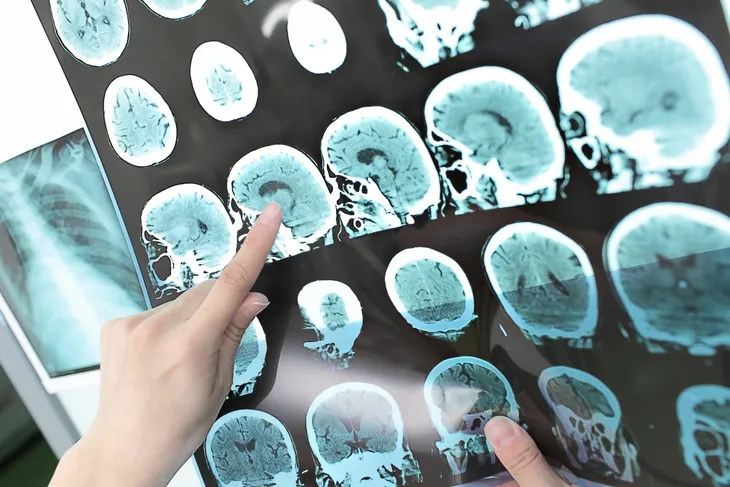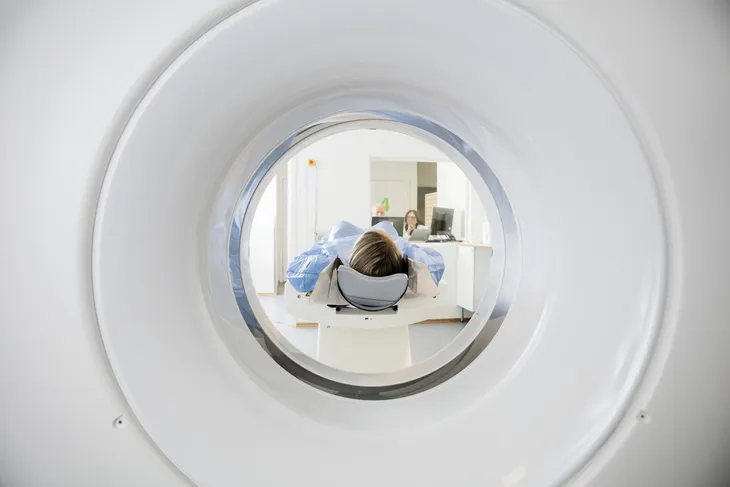Undergoing a medical procedure for the very first time is intimidating, to say the least. You can read about the safety, efficacy, and benefits of it all you want, but even the bravest among us still get a little nervous the day of the test. There’s nothing you can really do to eliminate that feeling altogether, but if learning more eases your mind even just a little bit, then we say it’s worth it. Understanding how to prepare and what to expect can help put your mind at ease.
What Is a CT Scan?
Computed tomography scans, or CT scans, use rotating X-rays and computers to produce cross-sectional images of the body. Whereas traditional X-ray machines are designed to target a single spot, CT scans take pictures that show thin “slices” of your muscles, bones, organs, and blood vessels to provide healthcare workers with a staggering amount of detailed information.
Sometimes referred to as CAT scans, these incredible machines can be used to produce a visual representation of just about every part of the body including the head, shoulders, spine, heart, abdomen, knee, and chest.
Purpose
High-resolution scans of a patient’s body are incredibly useful in diagnosing and guiding treatment. CT scans can diagnose muscle and bone disorders, detect internal injuries, provide the precise location of tumors, infections, or blood clots, and guide procedures like radiation therapy and surgery.
They’re also relied upon throughout the course of some treatments to monitor their effectiveness and progress. CT scans can also detect and monitor conditions and diseases like heart disease, liver masses, cancer, and more.
How to Get a CT Scan
If you believe that your treatment could benefit from a CT scan, reach out to your doctor and have a conversation about it. Though CT scans can be performed on an outpatient basis, you will require a referral from your doctor in order to get one. So if at all interested, be sure to reach out to your doctor and inquire about the necessary next steps.
How a CT Scan Is Performed
A moving table, a “donut” shaped X-ray scanner, and sometimes a special dye called contrast material work in tandem to provide your doctor with the most accurate images available.
Patients are asked to lie completely still on the table or bed, and sometimes even hold their breath, as the table moves in and out of the scanner, and as the scanner rotates, buzzes, and whirs to work.
How to Prepare for a CT Scan (Without Contrast)
As with all medical tests and procedures, prepare yourself to arrive at the medical facility well in advance of the actual testing time. Your doctor may advise you to refrain from eating or drinking for up to 4-hours before your exam.
You may be asked to change into a gown before the exam, so be sure to wear comfortable clothes on the day of the procedure as well as leave any jewelry at home. Metal inside the scanner can interfere with the scan results, so you’ll want to make sure to account for that.
How to Prepare for a CT Scan (With Contrast)
As mentioned earlier, some medical inquiries require the use of contrast material in order to produce more accurate or more targeted CT scan images. Contrast material (or dye) highlights certain features like organs, blood vessels, and more.
If your doctor deems that contrast material is necessary, your preparation may include drinking or being injected with a special iodine-based liquid. Know that this liquid is safe and is typically cleared from your body through your urine over the course of 24-hours.
What to Expect: The Procedure
When it’s time for the test, you’ll be instructed to lie on your back on the CT scan table once you’ve changed and cleared yourself of any objects that may interfere with the test. Once in position, the bed will begin to slowly move into the scanner.
CT scans are completely painless and can take anywhere between 10 and 30-minutes to complete. While being scanned, you’ll be asked to remain as still as possible and may even be asked to hold your breath. Once the scan is finished, the bed will begin to move out of the scanning “donut” and you will be instructed to rise.
What to Expect: After the Procedure
CT scans are non-invasive and have very little impact on the rest of your post-exam life. You may be asked to remain at the testing facility for a period of time after the test to ensure that you feel well enough to go home.
If contrast was used, you may also receive special instructions and requests to drink lots of fluids.
The Results
It can take up to 24-hours to receive your CT scan results and images. Once the images are compiled, the radiologist and healthcare provider will review them and interpret the results for you.
Depending on the results, your doctor may reveal them over the phone or request an in-person follow-up to go over them more thoroughly.
The Benefits of a CT Scan
CT scans are a true technological marvel that grants medical professionals the ability to diagnose and monitor more medical conditions than we have time to list. The procedure is fast, simple, and usually free of side effects.
It’s impossible to overstate how profoundly useful CT scans, and the results that they deliver, can be to both the patient and the medical professional. They’re relied upon to provide doctors with an accurate analysis of soft tissue and bone, and there isn’t a hospital in the world that wouldn’t love to have another one.
Risks of CT Scans
The largest risk with a CT scan is radiation exposure. You and your doctor should discuss if the benefits of the test outweigh the exposure to radiation.
CT scans do rely on x-rays after all, and anything reliant on radiation comes with a risk of radiation exposure. CT scans rely on a relatively low dose of radiation to operate. Still, though, pregnant women are advised to avoid them.
Ingestion or injection of contrast material could cause an allergic reaction to the iodine inside, though reactions are rare and all facilities are equipped with the necessary resources required to handle them safely.
The Takeaway
CT scans are safe, pain-free, and provide astoundingly accurate results. They play an essential role in a hospital’s health care strategy, providing doctors with insight into a patient’s condition of a level and quality that dramatically increases their ability to treat it.
Preparing for one yourself is pretty easy, especially when compared to the overwhelming benefits that accurate results provide for you. It’s normal to be nervous, but it’s your job to do whatever it is you need to do to prepare your body and mind for the procedure. So learn more, ask questions, or talk to friends about what you can expect during your upcoming CT scan.
